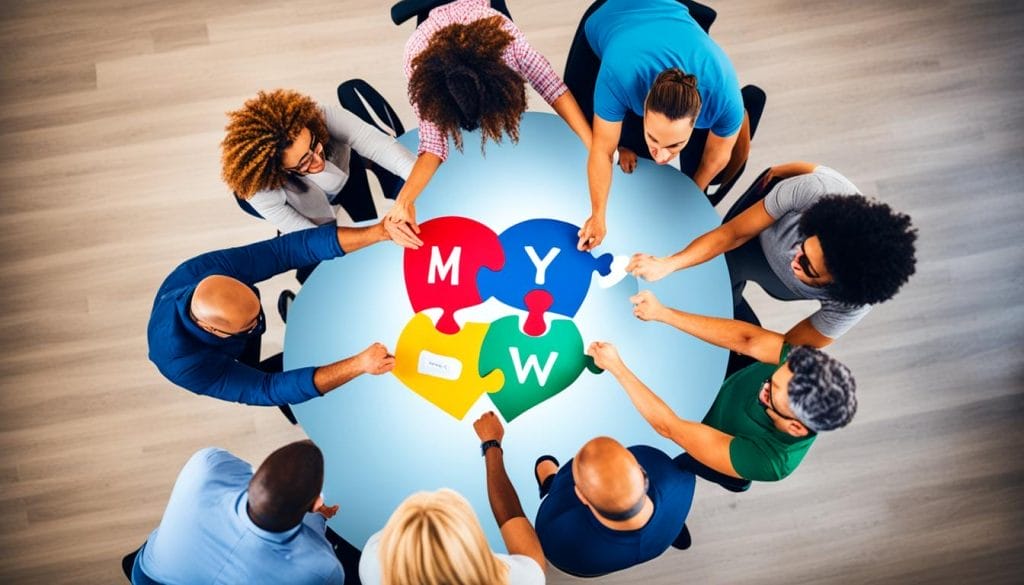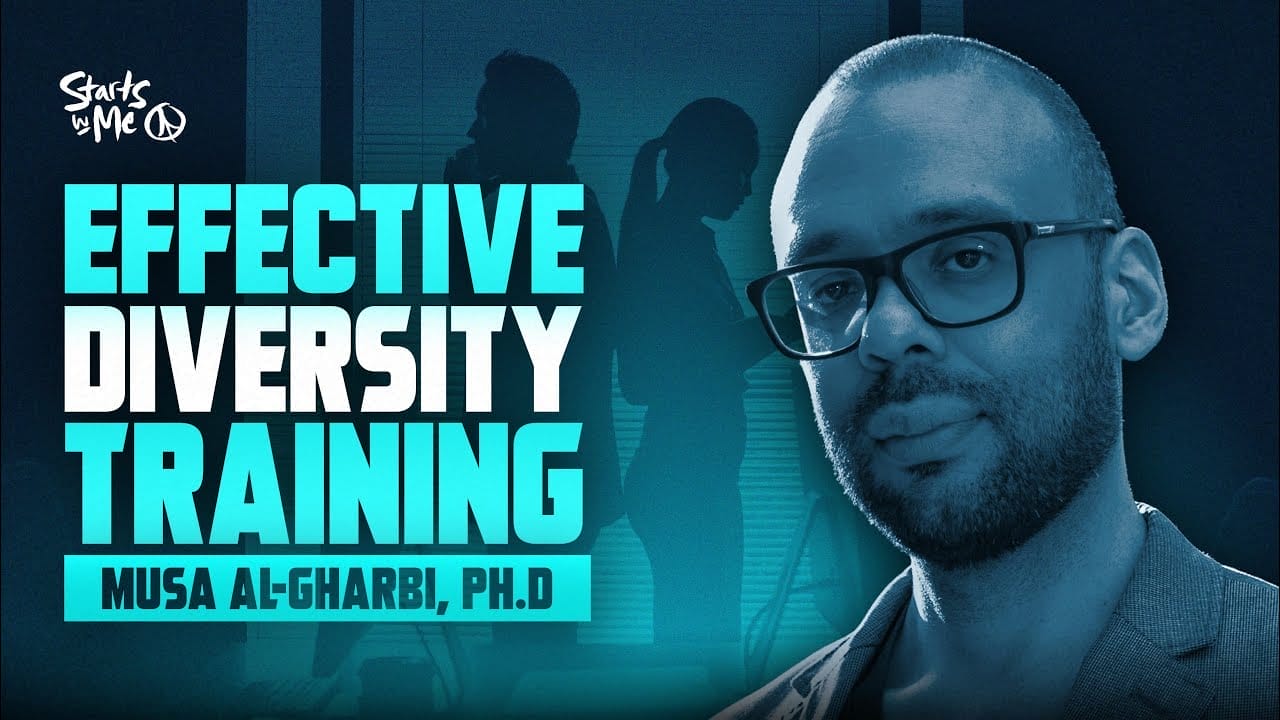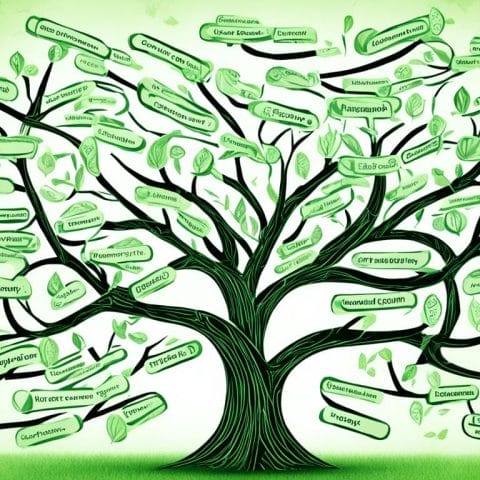Did you know that diversity training jobs are on the rise, offering rewarding opportunities to foster inclusive workplaces across the United States? As companies recognize the importance of diversity and inclusion, the demand for professionals in this field has grown exponentially. From diversity trainers to consultants and coordinators, there are numerous avenues for individuals seeking meaningful work in diversity training.
- Diversity training jobs provide rewarding career opportunities in promoting inclusion and diversity.
- Professionals can pursue roles such as diversity trainers, consultants, and coordinators.
- The demand for diversity training professionals is increasing as organizations prioritize diversity and inclusion.
- Various industries and organizations offer job openings in diversity training.
- Formal education, relevant experience, and strong interpersonal skills are key to success in this field.
Job Openings in Diversity Training
There is a significant demand for professionals in diversity training, with a variety of job openings available. These positions can be found in various industries and organizations, offering both full-time and part-time opportunities. From entry-level positions to mid-senior level roles, diversity training jobs cater to individuals with different levels of experience and expertise. Some of the common job titles in the field include diversity trainer, diversity consultant, and diversity training specialist.
Diversity training job openings can be found on platforms like HigherEdJobs, a popular website for finding employment opportunities in the education sector. However, diversity training positions are not limited to education alone; they can be found in corporate, nonprofit, government, and other sectors as well.
Organizations across industries recognize the importance of diversity and inclusion in creating a positive and productive work environment. As a result, there is a growing need for professionals who can deliver diversity training programs, develop diversity initiatives, and provide guidance on inclusive practices.
Diversity training jobs offer a range of responsibilities and opportunities for growth. Professionals in these roles may conduct workshops and seminars, design curriculum, perform diversity assessments, and collaborate with various departments to promote diversity and inclusion throughout the organization.
“Diversity training is an exciting field that allows individuals to make a tangible impact on workplace culture. By creating inclusive environments and fostering understanding among employees, diversity trainers and consultants play a vital role in advancing diversity and inclusion initiatives.”
Whether you are just starting your career or looking to transition into a new field, diversity training offers promising employment opportunities. With the growing focus on diversity and inclusion in today’s society, the demand for professionals in this field is expected to continue rising.
In the next section, we will explore the diverse career paths available in the field of diversity and inclusion, providing insights into the roles and responsibilities that professionals in this field undertake.
Careers in Diversity and Inclusion

Careers in diversity and inclusion focus on creating inclusive environments and promoting diverse representation. Professionals in this field work towards building inclusive workplace cultures, implementing diversity initiatives, and providing training and education on diversity-related topics.
Diversity and inclusion careers can be found in a wide range of industries, including corporate, nonprofit, government, and educational sectors. These careers offer individuals the opportunity to make a significant impact by advocating for equality, fostering an inclusive mindset, and driving positive change.
Professionals in diversity and inclusion roles play a crucial role in shaping organizational policies and practices to ensure fairness, equity, and respect for all employees. They collaborate with teams to develop strategies for recruiting and retaining diverse talent, creating inclusive leadership programs, and fostering an atmosphere where everyone feels valued and celebrated.
“Diversity is about all of us, and about us having to figure out how to walk through this world together.” – Jacqueline Woodson
Whether as a diversity officer, inclusion specialist, diversity program manager, or diversity consultant, these professionals are instrumental in creating environments where individuals from all backgrounds can thrive and contribute their unique perspectives.
Additionally, diversity and inclusion careers involve designing and facilitating workshops and training sessions that promote cultural awareness, challenge biases, and enhance employee understanding of diversity-related issues. Professionals in these roles have the opportunity to educate and empower others, fostering an environment of learning and growth.
Furthermore, diversity and inclusion careers are not limited to internal initiatives within organizations. Many professionals in this field also play a crucial role in collaborating with external partners, such as community organizations, to drive diversity and inclusion efforts on a broader scale.
With the growing recognition of the importance of diversity and inclusion in today’s society, the demand for professionals in this field continues to rise. Companies across industries are seeking individuals who can help them embrace diversity and create inclusive environments that promote innovation, collaboration, and overall business success.
Benefits of a Career in Diversity and Inclusion
A career in diversity and inclusion offers numerous benefits, both professionally and personally. Some of the key advantages include:
- The opportunity to make a positive impact on individuals and organizations by promoting equity and inclusivity.
- The chance to create meaningful change within workplaces and society at large.
- The ability to work with diverse teams and engage with a wide range of perspectives and experiences.
- The potential for career advancement and growth as organizations continue to prioritize diversity and inclusion initiatives.
- The satisfaction of knowing that your work contributes to a more just and equitable world.
Overall, careers in diversity and inclusion are not only fulfilling but also play a vital role in driving social progress and building a more inclusive society.
| Industries | Job Titles | Description |
|---|---|---|
| Corporate | Diversity Officer | Responsible for developing and implementing diversity and inclusion strategies within a company. |
| Nonprofit | Inclusion Specialist | Works to create inclusive environments and foster diversity within nonprofit organizations. |
| Government | Diversity Program Manager | Leads diversity and inclusion initiatives within government agencies at local, state, and federal levels. |
| Educational | Diversity Consultant | Provides guidance and support to educational institutions in promoting diversity and inclusion. |
How to Get Started in Diversity Training
To embark on a successful career in diversity training, individuals can consider various pathways that will equip them with the necessary knowledge and skills. Pursuing formal education and training programs in relevant fields such as diversity and inclusion, human resources, or organizational development can lay a strong foundation for aspiring professionals in diversity training positions.
Additionally, gaining practical work experience through internships, volunteering, or entry-level positions can provide valuable insights and exposure to the field. This hands-on experience allows individuals to apply theoretical concepts in real-world scenarios, fostering a deeper understanding of diversity and inclusion issues and their practical implications.
Building strong interpersonal and communication skills is essential for effectively engaging with diverse populations and facilitating meaningful dialogue. These skills enable diversity trainers and consultants to create inclusive spaces for open and honest conversations about diversity and encourage active participation from all participants.
Key Steps to Get Started:
- Pursue formal education and training programs in relevant fields.
- Gain practical work experience through internships, volunteering, or entry-level positions.
- Develop strong interpersonal and communication skills.
- Deepen understanding of diversity and inclusion issues.
“Developing strong interpersonal and communication skills, as well as a deep understanding of diversity issues, is essential for success in this field.” – Diversity Training Expert
By taking these steps, aspiring professionals can lay a solid foundation for a successful career in diversity training, positioning themselves for fulfilling and impactful roles in advancing diversity and inclusion initiatives within organizations.
Diversity Training Positions Roadmap
| Position | Description |
|---|---|
| Diversity Trainer | Designing and delivering training programs on diversity and inclusion topics, fostering inclusive workplace cultures |
| Diversity Consultant | Providing expert advice and guidance on diversity initiatives and strategies, helping organizations develop inclusive practices |
| Diversity Coordinator | Managing and implementing diversity programs and initiatives within organizations, promoting diversity and inclusion efforts |
Skills and Qualifications for Diversity Training Jobs

Diversity training jobs require a combination of skills and qualifications. In order to excel in these roles and make a meaningful impact, professionals need to possess a strong knowledge of diversity, equity, and inclusion principles.
Communication and facilitation skills are essential for diversity training specialists. They must be able to effectively engage with individuals from diverse backgrounds and deliver training programs in a clear and engaging manner. With their expertise, they can foster open dialogues and facilitate discussions on sensitive topics, creating a safe and inclusive learning environment.
Diversity training specialists also need to be able to develop and deliver training programs that address specific diversity-related issues and promote inclusivity in the workplace. This involves designing curriculum, creating engaging presentations, and developing interactive activities that resonate with participants.
In addition to training development, diversity training specialists are responsible for conducting diversity assessments. These assessments help organizations identify areas of improvement and develop strategies to enhance diversity and inclusion. Specialists need to possess strong analytical skills to analyze data and provide actionable recommendations.
Furthermore, diversity training specialists play a crucial role in providing consultation to organizations on diversity-related matters. They offer guidance on best practices, help develop diversity initiatives, and provide ongoing support to promote an inclusive culture.
While not always required, obtaining advanced degrees or certifications in diversity and inclusion can be advantageous for career advancement in diversity training. These credentials demonstrate a commitment to continuous learning and professional development, providing a competitive edge in the job market.
Diversity Training Specialist Roles
When pursuing a career in diversity training, professionals can explore various roles, including:
- Diversity Trainer
- Diversity Consultant
- Diversity Coordinator
Each role comes with its own set of responsibilities and focuses within the field of diversity and inclusion. The specific job requirements and qualifications may vary depending on the organization and industry.
Here is an example of how a diversity training specialist role might be structured:
| Job Title | Responsibilities | Qualifications |
|---|---|---|
| Diversity Trainer | Design and deliver training programs |
|
| Diversity Consultant | Provide expert advice and guidance on diversity initiatives |
|
| Diversity Coordinator | Manage and implement diversity programs and initiatives |
|
These are just a few examples, and the actual job titles and responsibilities may vary across organizations. However, the core skills and qualifications required for diversity training roles remain consistent.
With the right combination of skills, qualifications, and a passion for diversity and inclusion, individuals can thrive in the dynamic and rewarding field of diversity training.
Locations for Diversity Training Jobs
Diversity training jobs provide meaningful career opportunities across the United States. While major metropolitan areas often have a higher concentration of job openings, organizations in various locations nationwide prioritize diversity and inclusion, offering job opportunities in diversity training throughout the country. Here are some prominent cities where you can find a wide range of diversity training positions:
- New York, New York
- Albany, New York
- Brooklyn, New York
- Syracuse, New York
- Columbus, Ohio
- Washington D.C.
- Orlando, Florida
These cities host numerous organizations committed to fostering inclusive workplaces. However, it’s important to note that diversity training jobs are not limited to these locations. Employers across the country recognize the importance of diversity and inclusion, creating job openings in diversity training nationwide.
If you’re seeking a career in diversity training, consider exploring job opportunities in these cities or exploring remote work options that allow you to contribute to diversity and inclusion initiatives from anywhere.
One such hub of diversity training opportunities is New York City, where a multitude of organizations prioritize diversity and inclusion initiatives.
Salary Range in Diversity Training Jobs
The salary range in diversity training jobs can vary depending on several factors, including experience, qualifications, and location. It’s important to note that salaries may differ significantly based on the size and industry of the organization.
Entry-level positions in diversity training typically start around $40,000 per year. These roles are often filled by individuals who are passionate about promoting diversity and inclusion but may have limited professional experience in the field.
As professionals gain more experience and take on mid-senior level roles in diversity training, their salaries can increase significantly. Salaries for these positions can range from $60,000 to $120,000 or more annually, depending on various factors such as expertise, leadership responsibilities, and the organization’s resources.
It’s worth noting that industries with higher-demand and more complex diversity challenges, such as tech or finance, may offer higher salary ranges to attract top talent in the diversity training space.
Here is a visual representation showcasing the general salary ranges in diversity training jobs across different experience levels:
| Experience Level | Salary Range |
|---|---|
| Entry-level | $40,000 – $60,000 per year |
| Mid-senior level | $60,000 – $120,000+ per year |
Remember that these figures are approximate and can vary depending on several factors mentioned earlier. It’s also important to consider additional benefits and perks that organizations may offer as part of their compensation packages, such as healthcare, retirement plans, and professional development opportunities.
As the demand for diversity training professionals continues to grow, it’s crucial to stay informed about salary trends in the field and negotiate fair compensation based on your experience, qualifications, and the specific requirements of the position and organization.
Types of Diversity Training Positions
Diversity training positions encompass a variety of roles and responsibilities. These positions are critical in creating inclusive and diverse workplaces and promoting cultural understanding within organizations. The three main types of diversity training positions are:
Diversity Trainer Jobs
Diversity trainers are professionals who design and deliver training programs on topics related to diversity and inclusion. They create interactive workshops, presentations, and seminars to educate employees on the importance of diversity, unconscious bias, cultural competence, and inclusive practices. Diversity trainers facilitate discussions, encourage self-reflection, and provide resources to support ongoing learning and development. Their goal is to foster a greater understanding and appreciation for diversity within the organization.
Diversity Consultant Positions
Diversity consultants are experts in diversity and inclusion who provide advice and guidance to organizations on implementing effective diversity initiatives and strategies. They conduct thorough assessments of an organization’s current diversity practices, identify areas for improvement, and develop tailored inclusion plans. Diversity consultants work closely with executive teams, human resources departments, and employee resource groups to create comprehensive diversity programs that align with the organization’s goals and objectives. They also provide ongoing support and training to ensure the successful implementation of diversity initiatives.
Diversity Coordinator Vacancies
Diversity coordinators play a key role in managing and implementing diversity programs and initiatives within organizations. They collaborate with various stakeholders to develop diversity policies and procedures, set measurable goals, and monitor progress. Diversity coordinators may also oversee employee resource groups, diversity councils, and the organization’s diversity training efforts. They work closely with leadership to create a culture that values diversity and inclusion, providing support and resources to employees at all levels.
These three types of diversity training positions work together to create positive change within organizations, fostering an environment that celebrates diversity and promotes inclusivity. By leveraging their expertise and skills, diversity trainers, consultants, and coordinators help build stronger, more inclusive workplaces where all individuals can thrive.
Remote and On-site Opportunities in Diversity Training

Diversity training jobs offer professionals the flexibility to choose between remote and on-site work arrangements. While some positions may require on-site presence, particularly when delivering training programs or conducting assessments within organizations, there are also abundant remote opportunities available. Remote work has become increasingly prevalent, especially in the wake of the COVID-19 pandemic, enabling individuals to work from any location.
Embracing remote work in diversity training has opened up new avenues for professionals seeking job openings in diversity training. With remote opportunities, geographical barriers are no longer factors limiting access to diverse employment options. Professionals can now contribute to fostering inclusive workplaces and promoting diversity and inclusion from the comfort of their own homes.
For remote diversity training roles, professionals can engage in virtual training sessions, utilizing video conferencing tools, and leveraging online platforms for content delivery. Remote work also allows diversity trainers, consultants, and coordinators to collaborate with colleagues and clients from various locations, fostering a diverse and inclusive network of professionals working towards a common objective.
While remote work prevails in certain diversity training roles, it’s important to note that certain tasks may require on-site presence. This includes situations where training programs or assessments are conducted directly within organizations, ensuring a more hands-on and personalized approach to diversity training.
It’s essential for professionals considering careers in diversity training to assess their preferences and requirements regarding remote and on-site work. With the increasing availability of remote opportunities in the field, individuals can find job openings in diversity training that align with their preferred work arrangements, promoting work-life balance and flexibility in their careers.
The Benefits of Remote Work in Diversity Training
“Remote work allows professionals in diversity training to overcome geographical constraints and reach a wider audience, promoting inclusivity on a broader scale.” – Diversity Training Specialist
On-site Training: A Personal Touch
When it comes to delivering training programs and conducting assessments within organizations, on-site work allows diversity trainers and consultants to establish a more personal connection with participants. This approach enables trainers to tailor their programs to specific workplace environments and address the unique needs and challenges faced by each organization.
Remote Work: Expanding Reach and Access
Remote work provides diversity trainers and consultants with the flexibility to work with clients and organizations across various locations. This allows professionals to expand their reach and engage with diverse workplaces, cultures, and communities, contributing to a more inclusive society as a whole.
| Remote Opportunities in Diversity Training | On-site Opportunities in Diversity Training |
|---|---|
| – Virtual training sessions | – Tailored programs for specific organizations |
| – Online content delivery | – Personalized assessments |
| – Flexibility and work-life balance | – Direct engagement with participants |
| – Collaboration with colleagues worldwide | – Hands-on approach to training |
Regardless of the work arrangement, remote or on-site, diversity training professionals play a vital role in cultivating inclusive workplaces. By offering a range of employment opportunities, diversity training jobs empower individuals to make meaningful contributions towards fostering diversity and inclusion.
Advancing Your Career in Diversity Training
Professionals seeking to advance their careers in diversity training can take various steps. Continuously expanding knowledge and skills through professional development opportunities, networking with other professionals in the field, and pursuing advanced degrees or certifications can enhance career prospects.
Taking on leadership roles and gaining experience in managing diversity programs and initiatives can also contribute to career growth. By demonstrating the ability to effectively handle diversity training positions, professionals can position themselves for more challenging roles and even diversity coordinator vacancies.
“Continuous learning and professional development are crucial for success in the field of diversity training. By staying up to date with the latest research, trends, and best practices, professionals can provide impactful training programs and drive meaningful change within organizations.”
Networking Opportunities
Networking plays a vital role in advancing careers in diversity training. Engaging with other professionals in the field allows individuals to share insights, learn from experiences, and stay informed about new opportunities. Attending industry conferences, workshops, and webinars can provide valuable networking opportunities and help professionals build connections with like-minded individuals.
Advanced Degrees and Certifications
Pursuing advanced degrees or certifications in diversity and inclusion can be a significant asset for professionals seeking career advancement. Programs such as Master’s degrees in Diversity and Inclusion offer in-depth knowledge and specialized training that can enhance professional credibility and open doors to higher-level diversity training positions. Additionally, certifications from recognized institutions can demonstrate expertise and dedication to the field.
Leadership and Project Management Experience
Taking on leadership roles in managing diversity programs and initiatives can showcase an individual’s ability to drive change and make a lasting impact. Professionals can seek out opportunities to lead diversity training projects, manage teams, and collaborate with organizational leaders to implement diversity and inclusion strategies. This experience provides valuable skills in project management, communication, and stakeholder engagement that are highly valued in the field.
Continuing Education and Professional Development
Continuously expanding knowledge and skills through ongoing education and professional development is essential for staying current in the field of diversity training. Professionals can seek out workshops, seminars, and online courses that offer specialized training in areas such as unconscious bias, cultural competence, and inclusive leadership.
| Advancement Steps | Benefits |
|---|---|
| Expand knowledge and skills through professional development opportunities | Enhance career prospects and stay updated with industry best practices |
| Networking with other professionals in the field | Share insights, learn from experiences, and discover new opportunities |
| Pursuing advanced degrees or certifications in diversity and inclusion | Increase professional credibility and open doors to higher-level positions |
| Taking on leadership roles in managing diversity programs and initiatives | Showcase ability to drive change and gain valuable project management experience |
Advancing a career in diversity training requires commitment, dedication, and proactive engagement with the field. By continuously expanding knowledge, building networks, and seeking leadership opportunities, professionals can maximize their potential and make a significant impact in fostering inclusive workplaces.
Conclusion
Diversity training jobs provide fulfilling career opportunities for individuals dedicated to promoting inclusion and diversity in the workplace. With a wide range of job openings and employment opportunities available in diversity training, professionals can establish successful careers in this field. By staying updated on industry trends, gaining relevant experience, and continuously developing skills, individuals can build rewarding careers in diversity and inclusion.
To excel in diversity and inclusion careers, professionals should actively seek resources and knowledge to enhance their expertise. This could include attending workshops, participating in webinars, and pursuing advanced degrees or certifications in the field. Staying informed about the latest research and best practices, such as the findings in a recent study on diversity training’s impact on organizations (source), can also contribute to professional growth.
Furthermore, individuals interested in diversity training employment opportunities should explore positions such as diversity trainers, diversity consultants, and diversity coordinators. These roles involve designing and implementing diversity initiatives, conducting training programs, and consulting with organizations to foster inclusive cultures. Accessible in various industries and locations across the United States, diversity training jobs offer a pathway to impactful and rewarding careers.
In conclusion, diversity and inclusion careers offer individuals the chance to make a positive difference in the workplace. With the right combination of knowledge, experience, and skills, professionals can thrive in the dynamic field of diversity training. By embracing ongoing learning and seizing employment opportunities in this growing sector, individuals can contribute to building inclusive cultures and shaping a more diverse future.
FAQ
What are diversity training jobs?
Diversity training jobs are positions that focus on creating inclusive environments and promoting diverse representation in the workplace. Professionals in this field work towards building inclusive workplace cultures, implementing diversity initiatives, and providing training and education on diversity-related topics.
Where can I find job openings in diversity training?
Job openings in diversity training can be found in various industries and organizations. Major metropolitan areas like New York, Columbus, and Washington D.C. often have a higher concentration of job opportunities. Additionally, organizations in various locations nationwide prioritize diversity and inclusion, providing job openings in diversity training throughout the country.
What careers are available in diversity and inclusion?
Careers in diversity and inclusion can be found in a wide range of industries, including corporate, nonprofit, government, and educational sectors. Some common job titles in this field include diversity trainer, diversity consultant, and diversity training specialist.
How can I get started in a career in diversity training?
To get started in a career in diversity training, individuals can pursue formal education and training programs in fields such as diversity and inclusion, human resources, or organizational development. Gaining relevant work experience through internships, volunteering, or entry-level positions is also beneficial. Developing strong interpersonal and communication skills, as well as a deep understanding of diversity issues, is essential for success in this field.
What skills and qualifications are needed for diversity training jobs?
Diversity training jobs require a combination of skills and qualifications. Strong knowledge of diversity, equity, and inclusion principles is crucial, along with excellent communication and facilitation skills. Professionals in this field should be able to develop and deliver training programs, conduct diversity assessments, and provide consultation on diversity-related matters. Advanced degrees or certifications in diversity and inclusion can also be beneficial for career advancement.
Where can I find diversity training jobs?
Diversity training jobs are available across the United States. Cities like New York, Albany, Columbus, and Washington D.C. offer a wide range of diversity training positions. However, organizations in various locations nationwide prioritize diversity and inclusion, providing job openings in diversity training throughout the country.
What is the salary range for diversity training jobs?
The salary range in diversity training jobs varies depending on factors such as experience, qualifications, and location. Entry-level positions may start around ,000 per year, while mid-senior level roles can have salaries ranging from ,000 to 0,000 or more annually. Factors such as the size and industry of the organization may also impact salary levels in diversity training positions.
What types of diversity training positions are available?
Diversity training positions encompass a variety of roles and responsibilities. Diversity trainers are responsible for designing and delivering training programs on topics related to diversity and inclusion. Diversity consultants provide expert advice and guidance on diversity initiatives and strategies. Diversity coordinators play a key role in managing and implementing diversity programs and initiatives within organizations.
Are there remote opportunities in diversity training?
Yes, diversity training jobs offer flexibility in terms of work arrangements. Some positions may require on-site work, especially when delivering training programs or conducting assessments within organizations. However, there are also remote opportunities available, allowing professionals to work from any location.
How can I advance my career in diversity training?
Professionals seeking to advance their careers in diversity training can continuously expand their knowledge and skills through professional development opportunities, network with other professionals in the field, and pursue advanced degrees or certifications. Taking on leadership roles and gaining experience in managing diversity programs and initiatives can also contribute to career growth.
Are there fulfilling career opportunities in diversity training?
Yes, diversity training jobs offer fulfilling career opportunities for individuals passionate about promoting inclusion and diversity in the workplace. With a range of job openings and employment opportunities available, professionals can carve out successful careers in this field. By staying updated on industry trends, gaining relevant experience, and continuously developing skills, individuals can build rewarding careers in diversity and inclusion.





